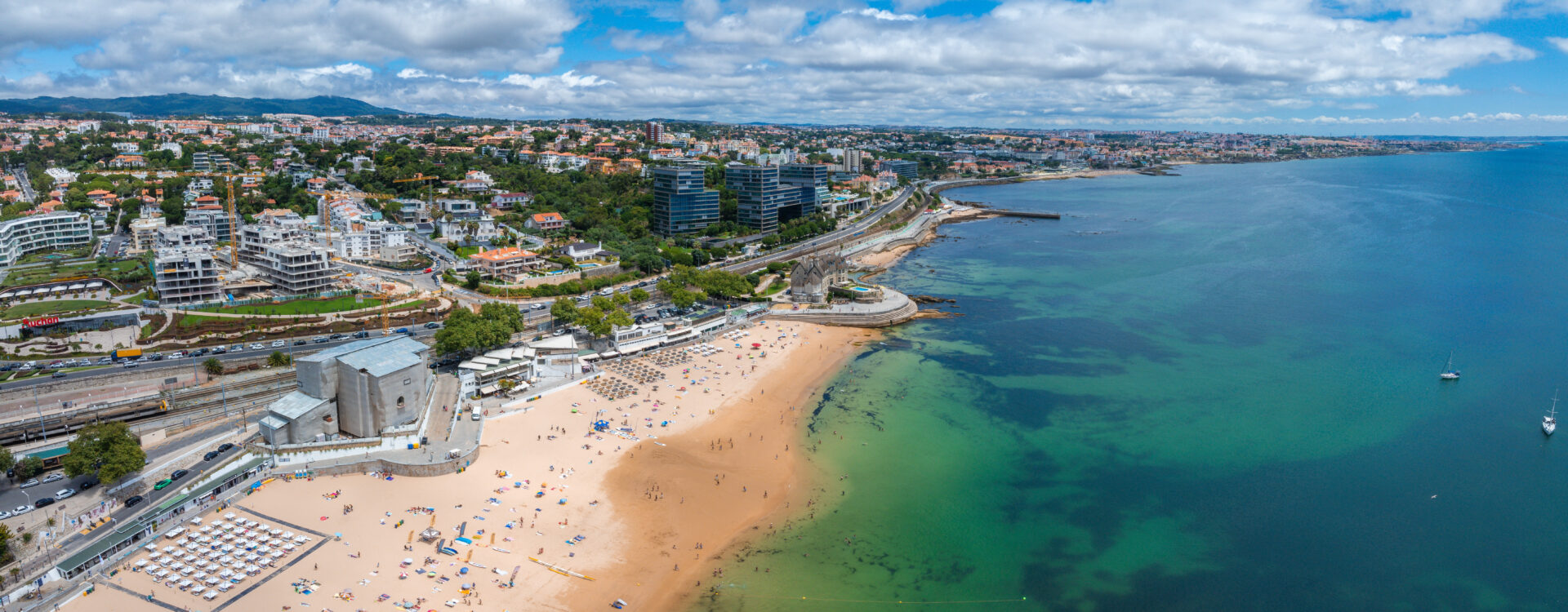Professional Assistance for Digital Nomads Looking to Relocate to Portugal
Portugal has become one of Europe’s top destinations for digital nomads — and it’s easy to see why. A warm climate, reliable internet, welcoming culture, and affordable living costs create the ideal setup for remote professionals.
We help digital nomads understand visa options, choose the right place to live, and navigate the essentials of settling in.
Talk to us about your relocation plans, or explore our Moving to Portugal Guide for a complete overview.

Talk to our Team
Table of Contents
Why Portugal Attracts Digital Nomads
Portugal combines everything many remote workers look for: safety, good weather, fast and reliable internet, and a lifestyle that supports work-life balance. Whether you’re drawn to Lisbon’s urban energy, Porto’s creative scene, or the calm of coastal towns, there are options for every preference.
Digital nomads benefit from a relatively low cost of living (compared to Western Europe), easy access to nature, and a growing network of like-minded professionals. Many cities have strong English-speaking communities, and locals are generally open to international residents.
The country’s infrastructure — from transport to healthcare — is well developed, and mobile work is supported by a large number of coworking spaces, cafes with Wi-Fi, and short- or medium-term rental options.
Visa Options for Remote Workers
Portugal offers a dedicated Digital Nomad Visa for remote workers who earn income from abroad. This visa is available for both short stays (up to 1 year) and long-term residency.
Applicants must show proof of income above a minimum threshold, a remote work contract or freelance agreements, valid accommodation, and private health insurance. The application process is relatively straightforward, but requires gathering documents in advance and booking appointments with consulates or immigration offices.
Other options include the D7 visa, ideal for freelancers or remote workers with stable income, and the temporary stay visa for those planning to stay less than one year.
We help digital nomads understand which visa fits best and connect them with professionals who can handle the process efficiently.
Where to Live: Best Cities for Nomads
Some of the most popular destinations for digital nomads in Portugal include:
- Lisbon – A vibrant city with strong tech and creative communities, many coworking spaces, and fast connections
- Porto – A cultural hub with a relaxed pace, lower costs than Lisbon, and excellent food and design scenes
- Ericeira – A surf town that blends lifestyle with nomad infrastructure
- Madeira – Especially Funchal, home to one of Portugal’s first digital nomad villages
- Lagos and Faro (Algarve) – Ideal for sun, nature, and slower living
- Coimbra and Braga – Smaller cities with university communities and growing international appeal
Where you live depends on your rhythm, budget, and balance between community and focus. We help you compare locations based on what matters most to you.
Coworking and Infrastructure
Portugal has an expanding network of coworking spaces, particularly in Lisbon, Porto, and popular coastal towns. From large hubs to independent studios, there’s a growing ecosystem to support creative professionals, developers, consultants, and remote teams.
Many of these spaces offer:
- High-speed internet
- Meeting rooms and quiet zones
- Social events and networking
- Flexible monthly or weekly passes
Aside from coworking, you’ll also find laptop-friendly cafes, solid 4G/5G coverage, and good infrastructure for getting around — whether by train, bike, or walking.
We help you identify the best setups for your work needs and connect you with local communities and services.
Daily Life and Integration
Living in Portugal as a remote worker goes beyond finding a place to work. Understanding healthcare, accommodation, transport, and integration is key to making your stay comfortable and productive.
Portugal’s relaxed social culture makes it easy to meet people, especially in nomad-friendly areas. Local events, meetups, and online communities help newcomers feel connected quickly.
Whether you’re staying short-term or considering long-term residency, we support your transition into daily life — from finding health insurance to opening a bank account and understanding your rights as a resident or visitor.
How We Support Remote Professionals
We provide practical and strategic support for remote workers at different stages of their journey:
- Help choosing the best visa and preparing your application
- Introductions to immigration advisors or legal experts
- Advice on where to live based on lifestyle, budget, and infrastructure
- Assistance finding coworking spaces, housing, and services
- Local guidance for insurance, transport, SIM cards, and more
- Post-arrival support for integration and relocation logistics
Whether you’re coming alone, with a partner, or as part of a remote team, we help simplify the move and provide clarity on every step.
Start Planning Your Move
If Portugal feels like the right base for your remote lifestyle, we’re here to help you get started.
Contact us to explore your options and plan the next step.

Talk to our Team
Frequently Asked Questions
Can I stay in Portugal as a digital nomad without a visa?
If you’re from a visa-exempt country (like the US, UK, or most EU nations), you can stay up to 90 days in Portugal without a visa. For longer stays, a visa or residency permit is required.
How much income do I need to qualify for the digital nomad visa?
Requirements change, but as a guideline, applicants must earn at least four times the Portuguese minimum wage. This is verified through contracts or proof of income.
Is Portugal expensive for digital nomads?
Portugal is generally more affordable than most of Western Europe. Lisbon is the most expensive city, but other regions offer great value — especially for accommodation, food, and transport.
Are coworking spaces common in Portugal?
Yes. Coworking spaces are widespread, particularly in Lisbon, Porto, and coastal towns like Ericeira and Lagos. Many offer flexible plans and are designed with remote workers in mind.
Can I switch from a short-term stay to long-term residency later?
In many cases, yes. With the right visa or by applying for a residency permit after arrival, you can extend your stay. Legal advice is recommended to choose the right path.










